Serendip is an independent site partnering with faculty at multiple colleges and universities around the world. Happy exploring!
Critical Feminist Studies

Welcome to Critical Feminist Studies, an English and Gender-and-Sexuality-Studies course offered in Spring 2012 @ Bryn Mawr College. This is an interestingly different kind of place for writing, and may take some getting used to. The first thing to keep in mind is that it's not a site for "formal writing" or "finished thoughts." It's a place for thoughts-in-progress, for what you're thinking (whether you know it or not) on your way to what you think next. Imagine that you're just talking to some people you've met. This is a "conversation" place, a place to find out what you're thinking yourself, and what other people are thinking. The idea here is that your "thoughts in progress" can help others with their thinking, and theirs can help you with yours.
Who are you writing for? Primarily for yourself, and for others in our course. But also for the world. This is a "public" forum, so people anywhere on the web might look in. That's the second thing to keep in mind here. You're writing for yourself, for others in the class, AND for others you might or might not know. So, your thoughts in progress can contribute to the thoughts in progress of LOTS of people. The web is giving increasing reality to the idea that there can actually evolve a world community, and you're part of helping to bring that about. We're glad to have you along, and hope you come to both enjoy and value our shared explorations. Feel free to comment on any post below, or to POST YOUR THOUGHTS HERE.

The Veil (as told by the girl who bought a copy of The Complete Persepolis for $15 on Amazon.com)

An "accidental feminist"?
There was a curious write-up of a curious book in the New York Times Book Review today: The Accidental Feminist: How Elizabeth Taylor Raised Our Consciousness and We Were Too Distracted by Her Beauty to Notice. The reviewer reports that Liz "was a pathbreaker for social progress and women’s rights — albeit ... an unwitting one." Her stepdaughter said that, while she could detect a “thread of feminism” in some of the movies, she “doubted Taylor had been conscious of it.”
So this is a puzzling thought for me, and I'd be interested in hearing what you all think of it: can feminism be "accidental"? Or do you see it (definitionally, or in actuality) as a conscious, deliberate choice?

From Harley Quinn to Marjane Satrapi: How Genre and Institutional Tropes Affect The Male and Female Gaze
In the summer of 2011, one of the world’s biggest comic distributors, DC, announced that it would be re-launching many of its most popular titles with new storylines and re-imagined characters. Superhero fans of all genders rejoiced until they saw the new titles and realized that many of DC’s female characters had been rendered flatter, more sexually appealing, and less dynamic than ever before. Female fans the world over began to press, at comic conventions and on the internet, for answers from DC as to why they had decided to leave 50% of the world’s population behind as they modernized their books. They were met with a variety of responses, many of which added up to a simple “We write for men.” Though this sentiment is nothing new, and female comic characters have always been rendered to suit the male gaze, it is problematic when taken in the context of a purported modernization and exceptionally problematic when one considers the extreme leaps in sexualization that many of DC’s female characters have endured in the context of the recent reboot.
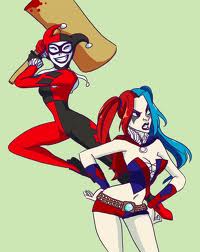

If she is an insider, what about me?
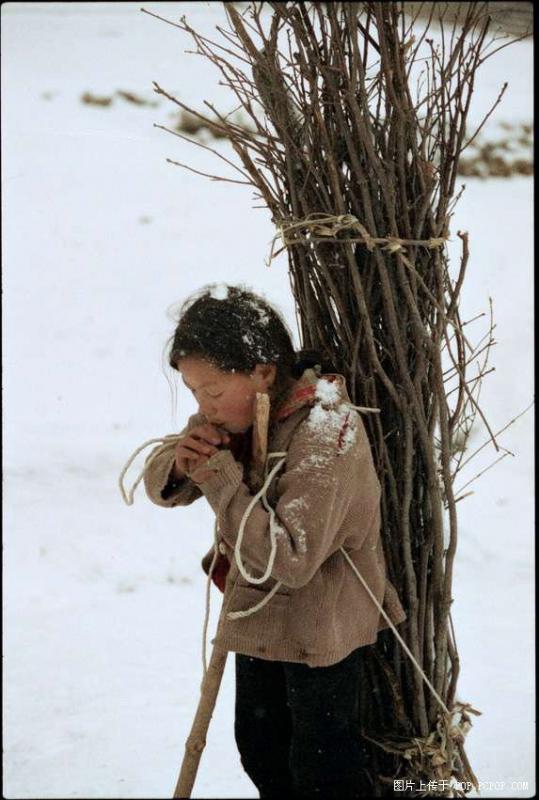
The feeling of reading Three Guineas seems a little bit awkward for me. Virginia Woolf asked many questions and answered them herself in the book, trying to make her writing more conversational and interactive. However I had a feeling of being excluded by the conversation. As a white woman from higher class, Virginia Woolf sent her invitations to the “outsiders”, yet I feel the ‘outside’ she defined is still the “inside” for most of us who read the book. With priorities of the rich, she could say that poverty, chastity, derision, and freedom from unreal loyalties are “four great teachers of the daughters of educated men”. However, does she really understand what the “outsiders” need and want?

Isn't exclusion necessary?
When we were talking about how Persepolis excludes many women, and only tells the story of one woman, I kept coming back to the idea that exclusion is necessary. Although feminism seeks to give voice to those who have been underheard, I don't think that works of literature can, or should try to show every side of the story or have every voice heard. Of course, it would be great if everyone's story were told through some medium, but individual works shouldn't have to do any more than tell one story. It's up to the reader to think about the other characters, such as the extremists in Iran, who we are not hearing from. I don't think that excluding an opinion makes something un-feminist. So many choices have to be made in the process of creating a story or work of art, that it seems ridiculous to say that feminism means hearing from the unheard, and therefore a text or peice is not feminist if it only gives one side to a story. A feminist person should try to hear all opinions, but it's too much to hold up each text and ask if it represents all sides of a story, although it is important to keep in mind who we are actually hearing from and not hearing from.

literal inscriptions
How does form inform our reading of texts as successfully feminist? (I am aware of my own biases in the meaning of “success,” but for the purposes of this exercise, I will define success as elliciting a response in those who engage with the material that incites emotion of some kind, in this case an emotional response that leads us to seek to support feminism). Typically feminsts forms have included poetry and literature, but these forms are somewhat tied to conceptions of women as delicate and admirers of that which is flowing, flowering, beautiful. Other options include co-opting the form of the patriarchal institutions which reinforce sexual hierarchies, such as academic work and dense theory couched in even denser language. This kind of feminism is far from accessible and has a specific class (and typically race) bias.

Feminism in Korea
Feminism in Korea
Though the United States is not a perfect country, the nationalism that’s been engraved in our history and in our citizens has flourished into the type of thinking that leads most North Americans to think that America is a place where people from everywhere are represented and have the freedom to speak out for or against whatever they choose speak out about. Ideas of Feminism are only relevant in a place as “open” and “accepting” as America. America: the country that gives voices to those who cannot speak. So, when the word Feminism is spoken, places like Korea and Iran aren’t what come to mind. Along with the war history between America and both these countries, Americans would normally not be able to relate Korean politics and Iranian politics to our own because of the differences we’ve associated between America and the rest of the world. America is different. Women here are able to be feminist. What is Korean feminism any way? Does that even happen there? And what about Iran? Certainly not, women aren’t allowed to go outside without head scarf on in Iran; they probably don’t even know what Feminism is. In our shallow American pride, we do not see outside of our nationalist bubble, but Korea’s history along with stories like Marjane Satrapi’s graphic autobiography “Persepolis” show that Feminism isn’t just a western idea.
feminist perspective on sex work
Feminist perspectives on prostitution
There are many feminist perspectives on the issue of prostitution; some think it is bad for female equality, but should be decriminalized, some think it should be legal, and others think it should be illegal. Feminists like Pateman, Satz, and Shrage think prostitution isn’t morally wrong, but given the current social and economic situation women are in, it continues giving women subordinate status. Other feminist outlooks against prostitution come from taking issue with the heavy costs sex workers pay, like risk of violence and sexually transmitted diseases. An argument for legalizing sex work is that it lets women build careers for themselves, which can help build self-esteem and empowerment. Pro-sex workers think that saying that ‘prostitution’ is an issue for women, takes away from the reality of societies where other structures lead to oppression of women. I’ve found that there are rarely feminists who identify as purely for or against sex work; the issue is too complex so even if someone thinks that prostitution hurts the female goal of equality, they still might think it should be legal.

The Outsiders' Society and Freaks
Virginia Woolf calls every woman to join a society that is separate from the society in which men operate – the Outsiders’ Society. She says that we cannot operate within the society of men, because there is “something in the conglomeration of people into societies that releases what is most selfish and violent, least rational and humane in the individuals…” (124). The Outsiders’ Society, Woolf states, is “the kind of society which the daughters of educated men might found and join outside your society but in co-operation with its ends” (126). She indicates that there is power in being outside of the insiders’ society: “the power to change and the power to grow… can only be preserved by obscurity…” (135). Existing and working in this Outsiders’ Society will give women power by obscuring them and separating them from the “limelight which paralyzes the free action of the human faculties and inhibits the human power to change and create…” (135). Virginia Woolf believes that being outside of men’s society will “shroud” women “in darkness.”
Last semester I took a course entitled “Reading Popular Culture: Freaks” with Suzanne Schneider, in which we discussed at length what it means to me marginal and why people in the so-called “Outsiders’ Society” are put there in the first place. The idea of existing outside of society according to what we discussed in Freaks is very different from what Virginia Woolf seems to think about being an “outsider.”

Dating Game Shows and Feminism in China
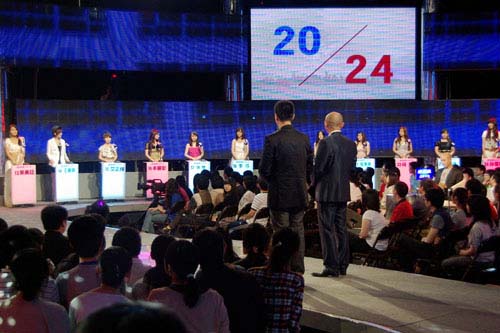
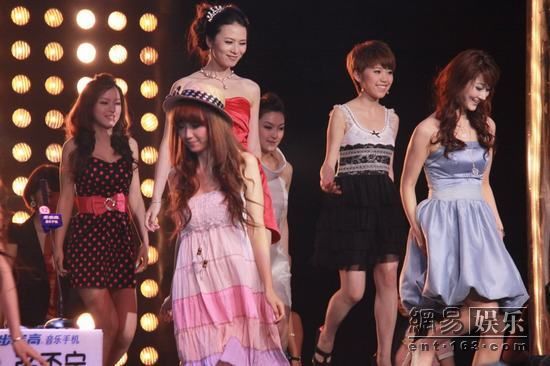
If you watch Chinese TV these days, you must be familiar with If You Are the One (Fei Cheng Wu Rao), the most successful TV show in China. Accompanied by fancy lighting and popular music, twenty-four single attractive women line up on a stage and are presented to a male candidate. The candidate introduces himself, including his occupation, interests, and love history with a few video clips, and answers questions from the ladies onstage. During his introduction, the ladies press a button to turn off the light in front of them (followed by a sound cue) if they find the gentleman not “date-worthy”. After three rounds of interaction, if there are girls keeping the light on for the candidate, and if he likes one of them, he succeeds in the match. But if all twenty-four lights go off, the male loses
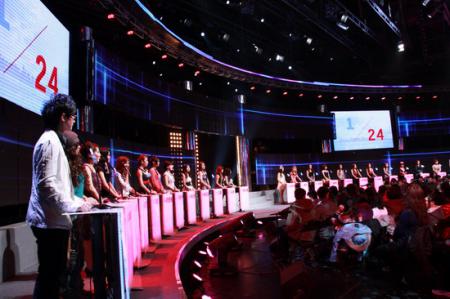

Girl Scouts and Feminism
February 3rd, 2012
Girl Scouts and Feminism
When I was seven, I joined the Girl Scouts. I wanted to be a part of the seemingly exclusive group that my friends bragged about, and do fun things like play games and go camping. When my parents signed me up and I went to my first Brownie meeting, I was excited. Unfortunately, the troop leader—one of my friends’ moms—only had a few arts and crafts and a boring activity. After the activity, she usually sent us out to the playground, which is where I learned the “exclusive” Girl Scout traditions of jump rope songs and hand games like “Miss Susie Had A Steamboat,” just like my mom had learned when she was a girl scout.
The Girl Scouts of America is a youth organization for girls in the United States and abroad that was formed in 1912 by Juliette “Daisy” Gordon Low in Savannah, Georgia. She assembled the first 18 scouts because “she believed that all girls should be given the opportunity to develop physically, mentally, and spiritually.” Their activities included hiking, basketball, camping trips, first aid and learning to tell time by the stars. Daisy Gordon Low wanted to enable girls to leave their restrictive home environments to perform community service and play games.
A Dinner Table: Eggs
At the beginning of this class we were shown The Dinner Party by Judy Chicago, an art display immortalizing women Chicago thought were the most influential to the feminist movement. I felt there were many problems with this kind of depiction, but after reading Three Guineas I felt an even greater negative reaction to it. Chicago's Woolfe plate made Virginia Woolfe seem like the climax of a great tradition of feminist thought- not an evolution in the scientific sense of the word, but a slow build up to a lauded, supposed-perfect feminist. And not just any kind of feminist, but a feminist explicitly defined by and given such status by her [white] ciswoman body. This hardly felt appropriate to me. Virginia Woolfe's writings exclude more than they embrace, and attempt to instruct women what they should do with themselves (to be what, precisely?) in a way that can be especially harmful. Why should she remain such an iconic representation of feminism when feminism as a movement, as a word, as a lifestyle and perception has moved beyond what she imagined or, maybe more importanty, deemed appropriate? There are, however, pieces of Three Guineas that I believe can still be found useful. So what is Virginia Woolfe now? Who is she meant to be to us?
I've thought about that, and I've come up with my own imagining of The Dinner Party. I consider this an initial draft of what it will become, and have many ideas for its next incarnations.

The Inside: History of women at Bryn Mawr College
In a class on gender and sexuality last semester, I focused my attention on transgender students at Bryn Mawr, and those that haven't been able to come to Bryn Mawr College because of their sex. Throughout the semester I met with administrators, deans, staff and students around campus trying to learn more about the school's policy on admitting transwomen as well as transmen. Following are the links to these works.
1) All "Women's" College
2) Moving towards a right relationship between Bryn Mawr
College and Transgender Students

Dinner Parties that Turn into Orgies
I started out with questions about porn: Can porn ever be feminist? If so, what makes it feminist? Is kink contrary to feminism?
After reading MacKinnon, however, I realized that this was turning into a conversation about feminism and BDSM/kink, not just porn.

Pro-Life Feminist: An Oxymoron?
I thought I understood feminism in its most basic of terms upon deciding to enroll in this course. Now, after having attended the handful of classes held so far, I know that there is no simple way to describe such a word, such a movement. I had imagined my basis of feminist understanding as rather commonplace. Having a mother and aunt who were supporters of Planned Parenthood throughout their early adult lives and onward, I too came to learn about what the organization supported and the importance of standing up for my rights and recognizing that they should be equal to the rights of men.
This past October, Planned Parenthood turned 95 years old. It has spent that time “promoting a commonsense approach to women’s health and well-being, based on respect for each individual’s right to make informed, independent decisions about health, sex, and family planning.” An organization in sharp contrast, Feminists for Life, was established in 1972 and has spent its time "shaping the core feminist values of justice, nondiscrimination, and nonviolence” and does not take a stance on “pre-conception” issues. Maintaining a focus on college campuses, the group pushes against movements like Planned Parenthood that offer abortion, their coin phrase “women deserve better than abortion.”


So in class today....
So I loaned my laptop to Anne in class today due to the slight malfunction with broken links, since I was able to access Serendip on my laptop. In doing so, I closed Firefox (due to a multitude of distracting tabs open) and opened up Google Chrome. Scrolling through the talking notes, Anne was talking from the projection screen and seemed amused by an "interesting" typo--"Three Men's Texts." But as the typos continued, I remembered about Jailbreak the Patriarchy.
Jailbreak the Patriarchy is a Google Chrome app that switches any and every gendered pronoun on any and every website. Soooo
- his --> her
- patriarchy --> matriarchy
- woman --> man
- feminist --> masculist
and my favorite:
Food for thought at our dinner table.
Does Supermom Exist?
"But above all she must press for a wage to be paid by the State legally to the mothers of educated men. The importance of this to our common fight is immeasurable; for it is the most effective way in which we can ensure that the large and very honourable class of married women shall have a mind and a will of their own, with which, if his mind and will are good in her eyes, to support her husband, if bad to resist him, in any case to cease to be ‘his woman’ and to be her self."
When reading “Three Guineas,” this passage gave me pause to think about what Virginia Woolf was saying about motherhood. She argues that motherhood should be viewed as a profession and also treated like one by granting wages to those who are mothers in order for all women to achieve financial independence. I started thinking about this concept of defining motherhood as a career, and I don’t think it’s an accurate definition today. Some women are mothers who don’t work, some women are non-mothers who work, and some do both; all are perfectly valid options, but I wanted to focus on the issues facing the working mother. Many women in academia have fewer children than they want or have slowed down their careers in order to raise their children. The major questions I had were how do women balance parenthood with a career, why is the share of work in parenting still so unequal, and why is academia specifically so incompatible with raising a family?



